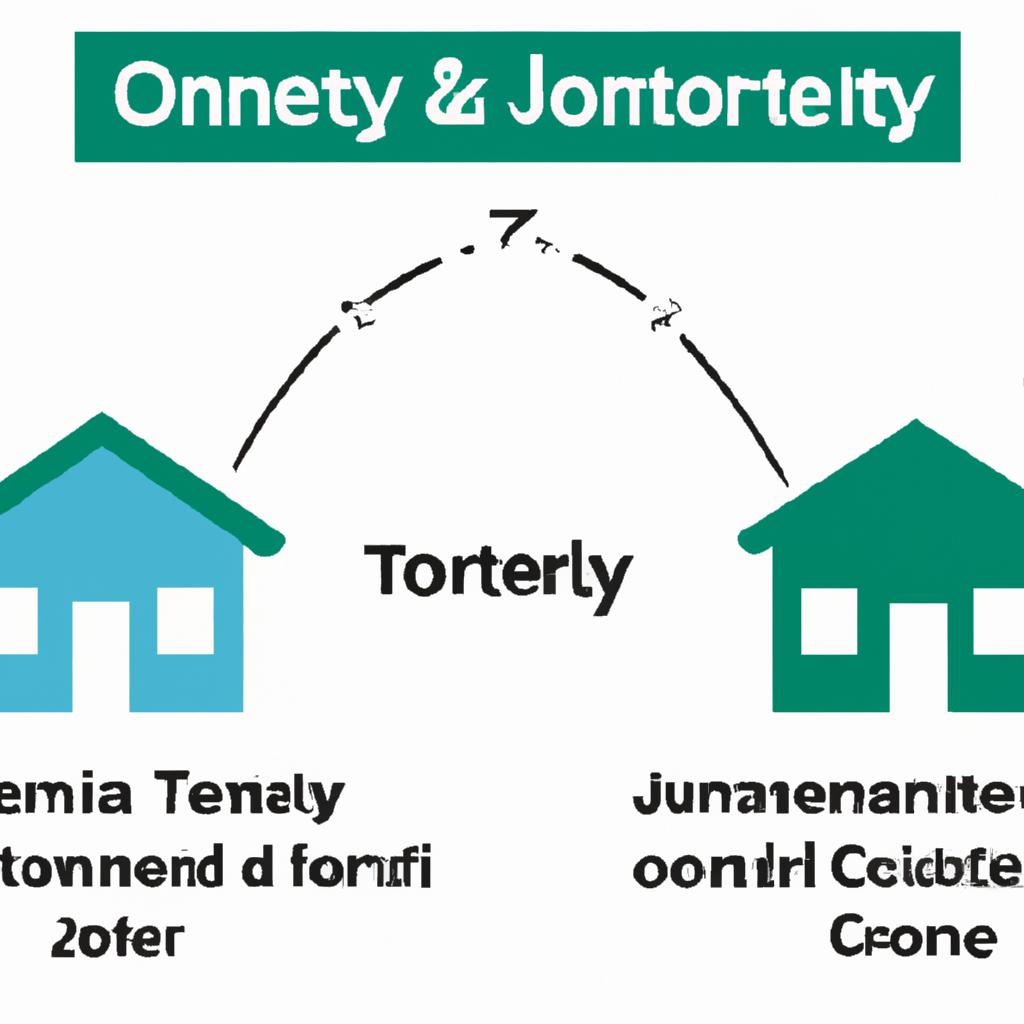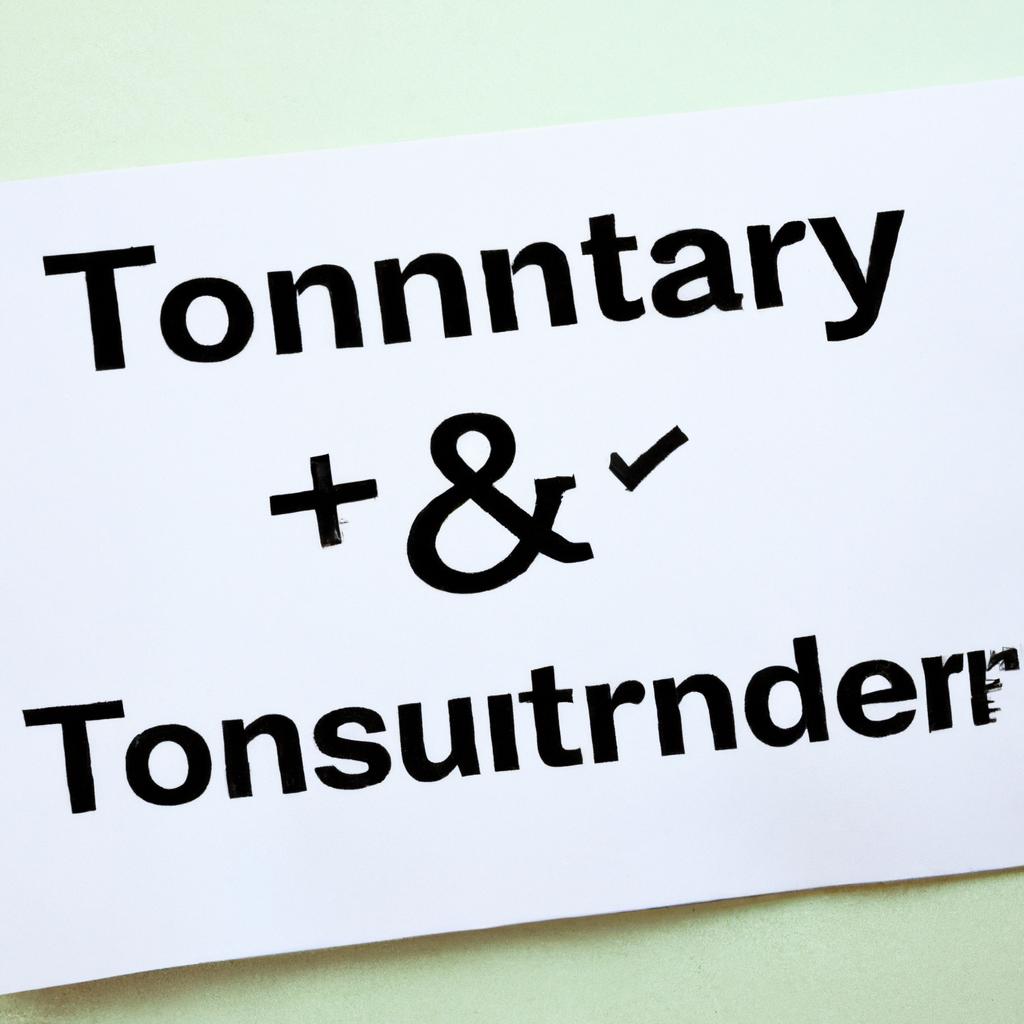When considering how to structure property ownership, determining whether to opt for joint tenancy or community property can be a pivotal decision with lasting implications. As experienced estate planning attorneys at Morgan Legal Group in New York City, we understand the nuanced differences between these two forms of property ownership and the potential benefits and drawbacks each may present. In this article, we will delve into the distinctions between joint tenancy and community property, providing insight into how each may impact your estate planning strategy.
Key Differences Between Joint Tenancy and Community Property
When it comes to property ownership, understanding the is essential for proper estate planning. Joint tenancy involves ownership of property by two or more individuals with rights of survivorship. This means that if one owner passes away, their share automatically transfers to the other owner(s). On the other hand, community property refers to property acquired during a marriage, where both spouses have equal ownership rights.
One of the main distinctions between joint tenancy and community property lies in how property is inherited upon the death of one of the owners. In joint tenancy, the deceased owner’s share passes directly to the surviving owner(s) outside of probate, making the transfer seamless and efficient. In contrast, community property may require a probate process to transfer ownership to the surviving spouse or heirs, depending on the laws of the state where the property is located.

Understanding the Ownership Structure: Joint Tenancy vs. Community Property
When it comes to understanding the ownership structure of property, it is crucial to distinguish between joint tenancy and community property. Both have their unique characteristics and implications, so it is essential to know the differences to make informed decisions.
Joint Tenancy: In joint tenancy, multiple individuals own the property together with equal rights and responsibilities. If one owner passes away, their share automatically transfers to the remaining owners. This structure is commonly used between spouses or family members who want to ensure seamless transfer of ownership in case of death. It offers the benefit of avoiding probate and allows for easy transfer of ownership.

Implications for Estate Planning and Probate: A Closer Look
When it comes to estate planning and probate, understanding the difference between joint tenancy and community property is crucial. Joint tenancy is a form of property ownership where two or more individuals own equal shares of a property. In the event of the death of one owner, the property automatically transfers to the surviving owner(s) without having to go through probate. This can make the transfer of assets smoother and less complicated for loved ones.
On the other hand, community property is a form of ownership where both spouses have equal ownership of property acquired during the marriage. In the event of the death of one spouse, the property automatically transfers to the surviving spouse. This can have implications for estate planning, as it may impact how assets are distributed and taxed. It’s important to consult with a knowledgeable estate planning attorney to determine which type of ownership is best for your situation and to ensure that your assets are protected and distributed according to your wishes.

Recommendations for Choosing Between Joint Tenancy and Community Property
When deciding between joint tenancy and community property, it is essential to understand the key differences and implications of each option. Joint tenancy involves co-ownership of property with rights of survivorship, meaning that if one owner passes away, their share automatically goes to the surviving owner. In contrast, community property is a form of ownership where each spouse owns a specific interest in the property, and upon the death of one spouse, their share passes according to their will or state laws.
For couples looking to protect their assets and ensure a smooth transfer of property upon death, considering factors such as estate taxes, creditor protection, and inheritance rights is crucial. Joint tenancy may be more suitable for couples looking for simplicity and automatic transfer of assets, while community property may provide more control and flexibility in estate planning. Consulting with an experienced estate planning attorney, like Morgan Legal Group in New York City, can help you navigate these complex legal matters and make informed decisions that align with your goals and preferences.
Q&A
Q: What is the main difference between joint tenancy and community property?
A: Joint tenancy involves co-ownership of property with rights of survivorship, meaning when one owner dies, their share automatically passes to the other owner(s). Community property, on the other hand, is a marital property regime where most property acquired during the marriage is owned equally by both spouses.
Q: How are ownership interests treated in joint tenancy and community property?
A: In joint tenancy, each owner has an equal and undivided interest in the property. In community property states, each spouse is considered to own 50% of all marital property, regardless of who acquired it.
Q: What happens to the property when one owner in joint tenancy passes away?
A: In joint tenancy, the deceased owner’s share automatically passes to the surviving owner(s) without the need for probate. This is known as the right of survivorship.
Q: Are there tax implications for joint tenancy and community property?
A: Yes, there are tax implications for both forms of ownership. In joint tenancy, any capital gains tax on the property may be deferred until the surviving owner sells the property. In community property states, both spouses are typically responsible for taxes on any income derived from community property.
Q: Which form of ownership is more common?
A: Joint tenancy is more common among unmarried co-owners who want to ensure a smooth transfer of ownership upon death. Community property is typically only applicable to married couples in community property states.
The Conclusion
In conclusion, understanding the nuances between joint tenancy and community property can make a significant impact on your financial and legal matters. While both options have their benefits and drawbacks, it’s important to choose the one that aligns best with your individual circumstances and goals. By knowing the differences between these two forms of property ownership, you can make informed decisions that can protect your assets and provide clarity for the future. Remember, seeking professional advice is always wise when navigating complex real estate and marital matters. Thank you for reading!
 In the world of property ownership, there are different types of legal structures that individuals can choose from. These structures dictate how ownership and ownership rights are divided among multiple owners. Two commonly used structures are joint tenancy and community property. While both of these structures involve shared ownership, they have significant differences that individuals should be aware of. In this article, we will dive deeper into the differences between joint tenancy and community property to help you better understand which may be the most suitable option for you.
In the world of property ownership, there are different types of legal structures that individuals can choose from. These structures dictate how ownership and ownership rights are divided among multiple owners. Two commonly used structures are joint tenancy and community property. While both of these structures involve shared ownership, they have significant differences that individuals should be aware of. In this article, we will dive deeper into the differences between joint tenancy and community property to help you better understand which may be the most suitable option for you.
What is Joint Tenancy?
Joint tenancy is a form of property ownership where two or more individuals hold equal and undivided interest in the property. This means that each owner has an equal share in the property’s ownership and has the right to use the entire property, not just a designated portion. When one owner passes away, their interest in the property is automatically transferred to the remaining owner(s). This is known as the “right of survivorship,” which means that the survivors become the sole owners of the property.
Advantages of Joint Tenancy:
– Right of survivorship: As mentioned earlier, this structure allows for a seamless transfer of ownership once one of the owners passes away without the need for probate or court proceedings.
– Easy to set up: Joint tenancy can be easily established with a simple joint tenancy deed.
– Equal ownership: All owners have an equal share in the property, which can help avoid disputes over ownership rights.
– Protection from creditors: In most states, joint tenancy offers protection from creditors seizing the entire property to satisfy a debt held by one owner.
Disadvantages of Joint Tenancy:
– Limited control: All owners have equal rights to the property, which can lead to conflicts if one owner wants to make changes to the property and the others do not.
– Potential tax implications: Depending on the state laws, joint tenancy may include gift and estate tax implications when transferring full ownership of the property to the surviving owners.
What is Community Property?
Community property is a legal structure where property is owned equally by a married couple. This means that both spouses have equal ownership of the property, including the right to manage, control, and dispose of it. In the event of divorce, community property is split equally between the spouses if they cannot come to an agreement themselves.
Advantages of Community Property:
– Equal ownership: Similar to joint tenancy, community property allows for equal ownership between spouses, which can avoid disputes over ownership rights.
– Tax benefits: In some states, community property income can be split equally between spouses, which can lead to potential tax savings.
– Protection from creditors: In some states, community property is protected from creditors of one spouse.
Disadvantages of Community Property:
– Complications with inheritance: Unlike joint tenancy, community property is not automatically passed on to the surviving spouse in the event of one spouse’s death. This can lead to complications in terms of inheritance and probate proceedings.
– Limited control: Both spouses have equal rights to the property, which can lead to conflicts if one spouse wants to make changes and the other does not.
Differences Between Joint Tenancy and Community Property:
– Ownership: In joint tenancy, ownership is shared among all parties involved, while community property is owned equally by a married couple.
– Transfer of ownership: In joint tenancy, the right of survivorship dictates that the ownership is automatically transferred to the surviving owner(s) without the need for probate. In community property, the transfer of ownership after death is not automatic.
– Protection from creditors: Joint tenancy offers protection from creditors in most states, while community property may offer protection in only some states.
– Control: In joint tenancy, all owners have equal rights to the property, while in community property, both spouses have equal ownership and control of the property.
Which is Better?
The choice between joint tenancy and community property ultimately depends on the specific needs and circumstances of a property owner. Joint tenancy may be a better option for unmarried individuals owning property together, as it offers easy transfer of ownership in case of death and potential protection from creditors. On the other hand, community property may be a more suitable option for married couples as it allows for equal ownership and potential tax benefits.
In conclusion, Joint tenancy and community property are two commonly used legal structures in shared property ownership. While they share some similarities, they have significant differences that individuals should consider when deciding which one is the most suitable for their needs. Consulting with a lawyer or financial advisor can also provide valuable insights and help individuals make an informed decision.

